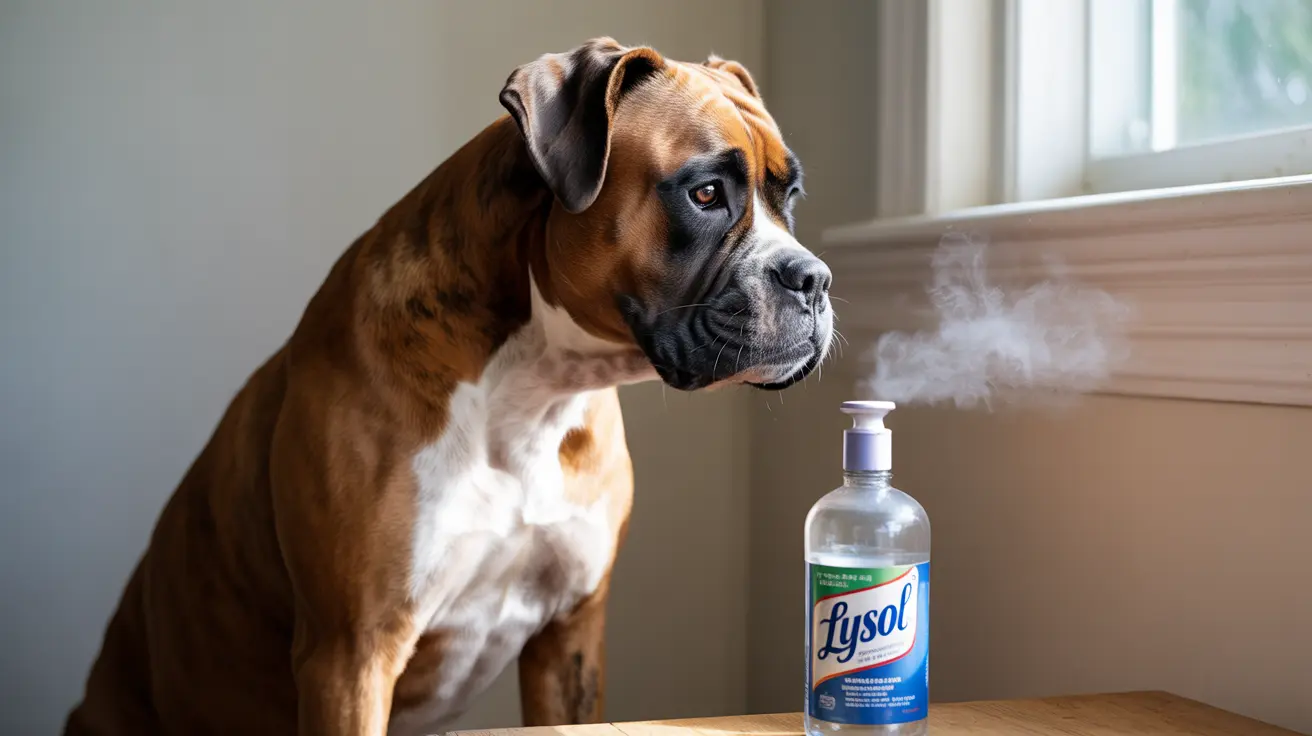As pet owners strive to maintain clean and disinfected homes, many wonder about the safety of common household cleaners like Lysol around their furry friends. The short answer is yes - Lysol can be harmful to dogs through various forms of exposure including ingestion, inhalation, or skin contact. Let's explore why this popular disinfectant poses risks and what you can do to keep your canine companion safe.
Understanding the dangers of Lysol for dogs is crucial for any pet owner who wants to maintain both a clean home and a healthy pet. The active ingredients in Lysol products can cause serious health issues ranging from mild irritation to severe poisoning, depending on the type and level of exposure.
Understanding Lysol's Harmful Ingredients
The primary concern with Lysol products stems from their active ingredients, particularly phenol compounds. Dogs have difficulty metabolizing phenols, which can accumulate in their system and potentially cause liver damage. Additionally, Lysol contains benzalkonium chloride and other quaternary ammonium compounds that can irritate your dog's skin, eyes, and respiratory system.
Signs of Lysol Toxicity in Dogs
Recognizing the symptoms of Lysol exposure is vital for quick intervention. Common signs include:
- Excessive drooling
- Vomiting and diarrhea
- Skin irritation or chemical burns
- Respiratory distress
- Lethargy or weakness
- Eye irritation and excessive tearing
- Loss of appetite
Immediate Steps After Lysol Exposure
If your dog comes into contact with Lysol, immediate action is crucial:
For Skin Contact:
- Thoroughly rinse the affected area with clean water
- Use mild soap if necessary
- Monitor for signs of irritation or burns
For Ingestion:
- Do not induce vomiting
- Rinse your dog's mouth with water
- Contact your veterinarian immediately
- Have the product container available for reference
Prevention and Safe Alternatives
The best way to protect your dog from Lysol exposure is through prevention and using safer alternatives:
Safe Cleaning Practices:
- Keep dogs away from freshly cleaned areas until completely dry
- Store cleaning products in secure, unreachable locations
- Use pet-safe cleaning alternatives
- Ensure proper ventilation when cleaning
Pet-Safe Cleaning Options:
- Vinegar and water solutions
- Enzymatic cleaners designed for pets
- Natural cleaning products certified as pet-safe
- Steam cleaning for fabric surfaces
Frequently Asked Questions
Is Lysol safe to use around dogs, or can it harm them?
No, Lysol is not safe to use around dogs. Its active ingredients can cause serious health issues through ingestion, inhalation, or skin contact.
What are the symptoms of Lysol poisoning in dogs that I should watch for?
Key symptoms include excessive drooling, vomiting, difficulty breathing, skin irritation, lethargy, and loss of appetite. In severe cases, dogs may experience seizures or organ damage.
What should I do if my dog ingests or gets Lysol on their skin or eyes?
Immediately rinse the affected area with clean water. For ingestion, do not induce vomiting. Contact your veterinarian right away and follow their guidance.
How can I safely disinfect my dog's bedding or toys without using Lysol?
Use pet-safe enzymatic cleaners, diluted vinegar solutions, or mild soap and water. Always rinse thoroughly and ensure items are completely dry before allowing pet access.
Are there pet-safe cleaning alternatives to Lysol that effectively disinfect my home?
Yes, there are many pet-safe alternatives available, including enzymatic cleaners, steam cleaning, and natural disinfectants specifically formulated for homes with pets.
Maintaining a clean home while keeping your dog safe is absolutely possible with the right knowledge and products. By choosing pet-safe alternatives to Lysol and following proper cleaning protocols, you can create a healthy environment for both you and your furry family member.






